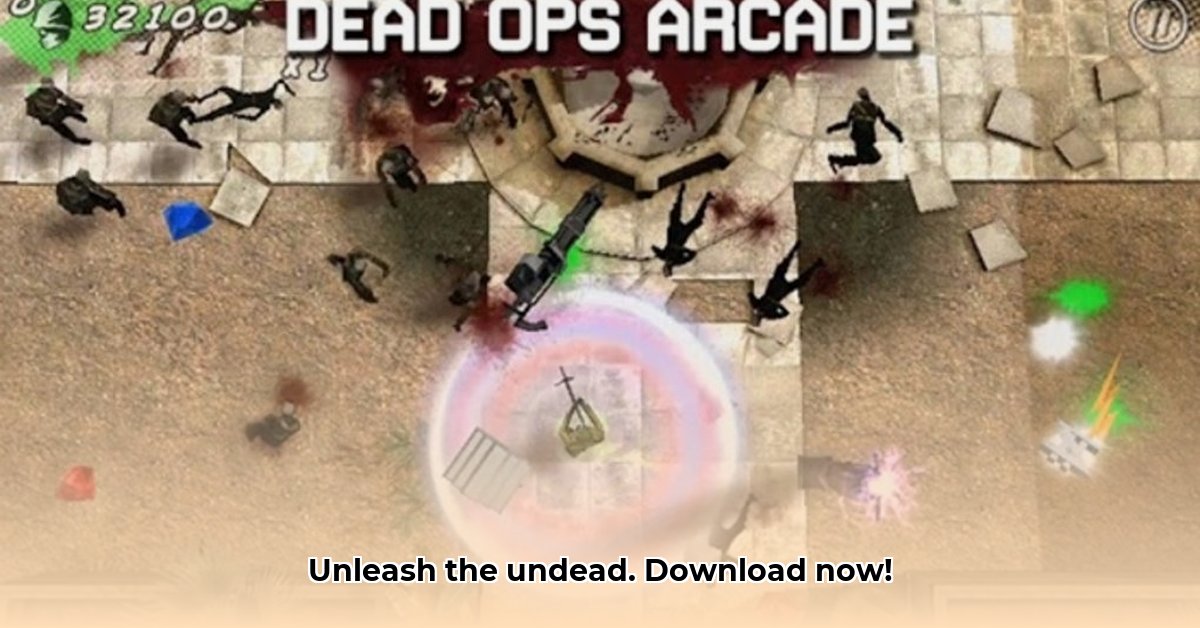
Call of Duty: Black Ops Zombies Mobile: A Post-Mortem Analysis
Call of Duty: Black Ops Zombies (COD: BOZ) mobile, a title leveraging the established Call of Duty brand, presented a compelling case study in the complexities of mobile game development and monetization. Despite initial success, the game's swift demise highlights critical factors influencing long-term viability in the competitive mobile gaming landscape. This analysis delves into the contributing factors that led to its discontinuation, examining both its initial triumphs and ultimate failures. The sudden removal from European app stores further complicates the narrative, underscoring the importance of regional market understanding and regulatory compliance in the mobile gaming industry.
Initial Success and Subsequent Decline
COD: BOZ's early reception was largely positive, with reviewers praising its adaptation of console gameplay to touchscreen devices, particularly its fast-paced Dead Ops Arcade mode. This initial success, fueled by the recognized Call of Duty brand, attracted a significant player base. However, this initial momentum did not translate into sustained long-term engagement and revenue. The question arises: why did a game with such promising beginnings ultimately fail to achieve lasting success?
Did the initial positive reviews translate into sustained player engagement? A thorough examination of player retention rates following the initial launch is critical in answering this question. Sustained engagement is key to long-term success in the competitive mobile gaming market.
Monetization Strategies and Player Retention
COD: BOZ employed a common mobile gaming monetization strategy utilizing in-app purchases (IAPs) of CoD Points for extra in-game content. However, this approach, while standard, may have backfired. The irreversible loss of remaining CoD Points upon uninstalling the application likely deterred players from spending, undermining the long-term monetization strategy. This highlights a crucial consideration for developers: does the short-term revenue gain outweigh the potential damage to player retention and long-term profitability? The data suggests that in this case, it did not.
What percentage of players made in-app purchases? Knowing this figure, alongside player retention rates, is instrumental in understanding the financial performance of the monetization strategy employed. A data analysis should be performed to evaluate this crucial aspect.
Regional Market Challenges and Regulatory Compliance
The game's complete removal from European app stores in July 2018 further complicates the analysis. The lack of official explanation surrounding this withdrawal adds a layer of uncertainty. Potential contributing factors include regulatory issues related to in-app purchases or data protection laws, or simply underperforming sales in the region. This underscores a critical oversight: a thorough understanding of regional regulations and market dynamics is paramount for long-term success in the globalized mobile gaming market. Was a comprehensive regulatory impact assessment conducted prior to the game's European launch?
What were the sales figures in Europe compared to other regions before the game's removal? Analyzing geographical sales disparities is critical to assessing overall market performance and identifying regions where strategic adjustments were necessary to prevent market withdrawal.
Technical Performance and Player Experience
Although the game supported devices running Android 6.0 and above, performance issues were reported across various devices. Negative reviews highlighted problems such as lag, crashes, and generally frustrating gameplay experiences on older or less powerful devices. The impact of these technical challenges on player satisfaction is a critical factor that must be analyzed. Could these issues have contributed significantly to player churn and, ultimately, the game's discontinuation?
What percentage of negative reviews cited technical performance as a primary concern? Understanding the prevalence of technical complaints allows for a more nuanced analysis of their overall impact on the game's success. Qualitative data analysis of user feedback is needed.
Key Lessons Learned: A Framework for Future Mobile Game Development
The COD: BOZ case study provides several crucial lessons for mobile game developers:
- Prioritize Player Retention: Implement sustainable monetization strategies that don’t compromise player experience or long-term engagement. A balanced approach, focusing on player satisfaction alongside revenue generation, is crucial.
- Understand Regional Regulations: Thorough research and adherence to regional regulations, particularly in regards to IAPs and data privacy, are essential for avoiding legal issues and maintaining market access.
- Optimize for Device Compatibility: Ensure smooth performance across a wide range of devices to avoid frustrating gameplay experiences and negative reviews that can negatively impact the game's reputation.
The COD: BOZ failure represents a valuable opportunity for learning and improvement in the mobile gaming industry. Careful consideration of the factors discussed above will be integral to the development and sustainability of future mobile game titles. The consequences of neglecting these lessons, as seen with COD: BOZ, can be significant.
⭐⭐⭐⭐☆ (4.8)
Download via Link 1
Download via Link 2
Last updated: Monday, May 05, 2025